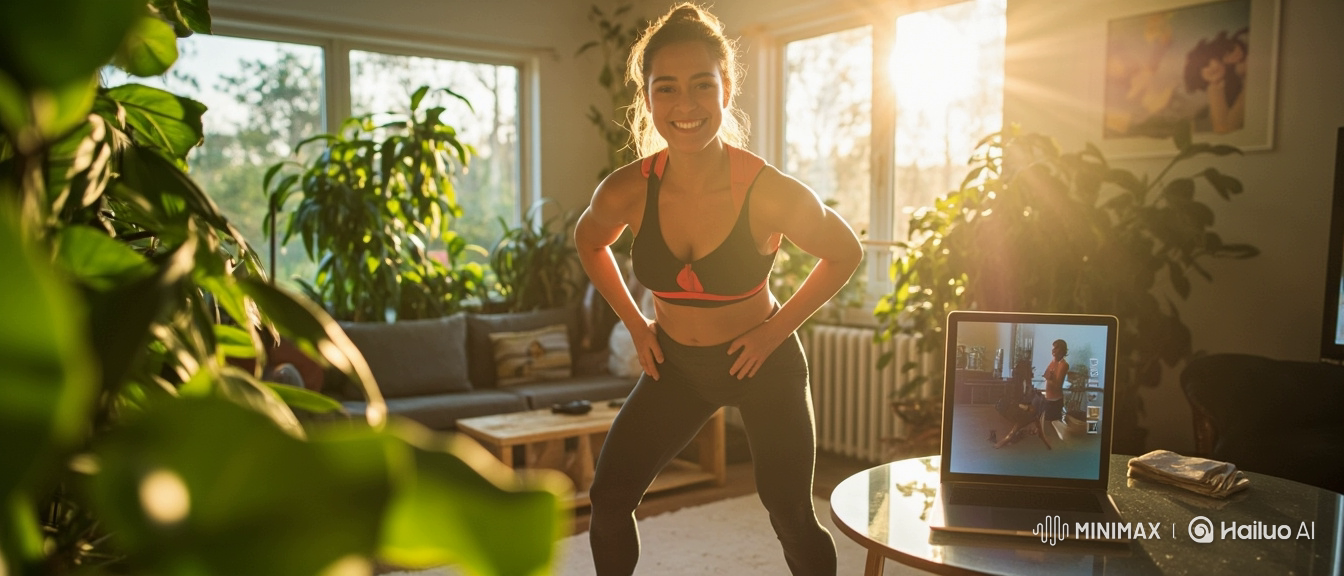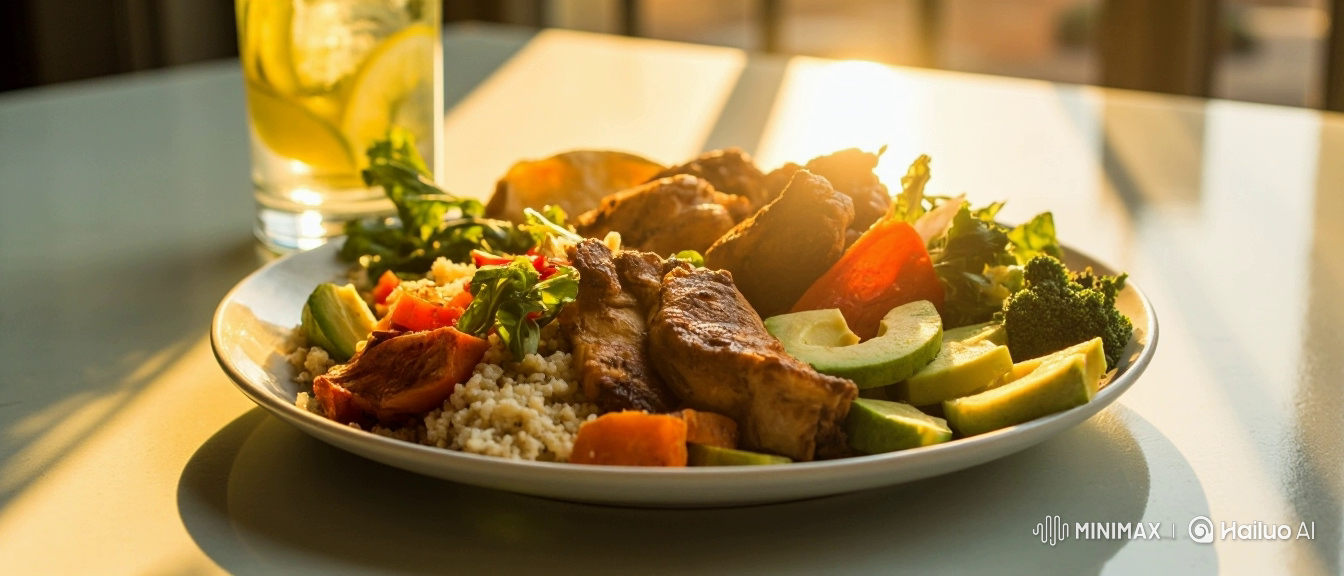Start Your Health & Fitness Journey Today!
Discover simple daily habits, easy exercises, and powerful fitness tips to boost your energy, improve your mental health, and stay in shape—perfect for beginners in 2025.
Abu Bakar

The Ultimate Guide to Health and Fitness: Simple Habits for a Better Life
In today’s fast-paced world, staying healthy and fit isn’t just a goal—it’s a lifestyle. With long work hours, increasing screen time, and less physical activity, people are facing more health problems than ever before. But the good news is: you don’t need a fancy gym membership or a strict diet to improve your health. Small, consistent habits can make a big difference.
This guide covers everything you need to know about health and fitness—how to get started, stay motivated, and make it a part of your everyday routine.
1. What Does Health and Fitness Really Mean.
Many people think health and fitness are only about losing weight or building muscle, but it’s much more than that.
-
Health refers to your overall well-being—physically, mentally, and emotionally.
-
Fitness is your ability to perform daily tasks efficiently without feeling tired.
Good health and fitness mean:
-
Strong immunity
-
Better sleep
-
Reduced risk of chronic diseases
-
More energy and focus
-
Improved mental health
2. Why You Should Care About Your Health
Let’s face it—when you feel good, you perform better in every area of life. Here’s why improving your health should be a top priority:
-
Prevention over cure: Staying healthy now can prevent costly diseases later.
-
Boosted energy levels: A fit body means fewer energy crashes.
-
Mental clarity: Exercise releases endorphins, which improve mood and reduce stress.
-
Better sleep: Regular activity and balanced eating lead to deeper, more restful sleep.
-
Self-confidence: Looking and feeling your best boosts self-esteem.
3. Getting Started: The Basics of a Healthy Lifestyle
A. Balanced Diet
Food is fuel. What you eat has a direct impact on how you feel.
-
Eat whole foods: Include fruits, vegetables, whole grains, lean proteins, and healthy fats.
-
Hydrate: Aim for 8–10 glasses of water a day. Dehydration causes fatigue and poor digestion.
-
Avoid processed foods: Cut down on sugar, fried foods, and snacks with long ingredient lists.
-
Don’t skip meals: Especially breakfast. It jumpstarts your metabolism.
B. Regular Physical Activity
You don’t have to become a gym rat. Start small.
-
Aim for at least 30 minutes of moderate activity most days of the week.
-
Walk more: Take stairs instead of the elevator, go for evening walks.
-
Try different exercises: Dancing, cycling, yoga, swimming, or home workouts.
-
Strength training: Helps build muscle and burns fat even at rest.
C. Rest and Recovery
Your body needs rest to repair and grow stronger.
-
Sleep 7–9 hours every night.
-
Take rest days between intense workouts.
-
Don’t ignore stress—use meditation, deep breathing, or hobbies to relax.

4. Smart Fitness Tips That Actually Work
-
Set realistic goals: Start with walking 5,000 steps a day, then move to 10,000.
-
Track your progress: Use apps or journals to stay motivated.
-
Be consistent, not perfect: It’s okay to miss a day—just don’t quit.
-
Make it fun: Choose activities you enjoy. This keeps you going longer.
-
Join a community: Whether online or in-person, support keeps you accountable.
5. Avoid These Common Mistakes
-
Doing too much, too soon: Start slow to prevent injuries and burnout.
-
Skipping meals to lose weight: This slows metabolism and causes muscle loss.
-
Following fad diets: They may give quick results, but they’re not sustainable.
-
Comparing yourself to others: Your journey is unique. Focus on your progress.
-
Neglecting mental health: Physical fitness means nothing without peace of mind.
6. Mental Health is Part of Fitness
Fitness is not just about muscles and abs—it’s about how you feel inside.
-
Practice mindfulness: Just 10 minutes a day can reduce anxiety.
-
Stay connected: Talk to friends or a therapist when feeling overwhelmed.
-
Avoid toxic content: Social media can damage self-image. Follow positive, real accounts.
-
Laugh often: It reduces stress and boosts immunity.
7. How to Eat for Fitness
Here’s a simple breakdown of what your meals should include:
-
Breakfast: Protein + Fiber (e.g., oats with yogurt and fruits)
-
Lunch: Lean protein + veggies + whole grains (e.g., grilled chicken with brown rice)
-
Snacks: Nuts, fruit, Greek yogurt
-
Dinner: Lighter meals, avoid overeating late
-
Before workout: A banana or toast with peanut butter
-
After workout: Protein shake or eggs with veggies

8. Supplements: Are They Necessary?
For most people, a balanced diet is enough. But in some cases, supplements can help:
-
Vitamin D: If you don’t get much sunlight
-
Protein powder: If you struggle to meet protein needs
-
Multivitamins: If your diet lacks variety
Always consult with a doctor before starting supplements.
9. Staying Motivated Long-Term
-
Visualize your “why”: Whether it’s more energy for kids or fitting into your favorite jeans—remember your reason.
-
Celebrate small wins: Lost 2 pounds? Took 10,000 steps? Celebrate it!
-
Mix things up: Try a new recipe or a different workout every week.
-
Reward yourself: Not with junk food, but maybe new workout clothes or a relaxing massage.
10. Final Thoughts: Health is a Journey, Not a Destination
Health and fitness aren't just short-term trends—they’re long-term investments. When you prioritize your body and mind, you unlock more energy, confidence, and joy in life. You don’t need to change everything overnight—start with one small, positive action each day.
🌟 So, are you ready to say yes to a healthier, happier, and stronger YOU by starting with daily exercise? 🌟
FAQs
Q: How long before I see results from working out?
A: Most people notice changes in 3–4 weeks, especially in energy and mood. Visible physical changes may take 6–8 weeks.
Q: Do I need to join a gym?
A: Not at all. Bodyweight exercises, walking, and online workouts at home are just as effective when done consistently.
Q: What’s the best time to work out?
A: The best time is when you can stick to it. Morning workouts may boost energy, but evenings are fine too.
Q: Can I cheat on my diet?
A: Absolutely! A balanced lifestyle includes occasional treats. Just don’t overdo it.
Q: Is 30 minutes of exercise enough?
A: Yes, if you’re consistent and keep your diet in check. Quality matters more than quantity.

